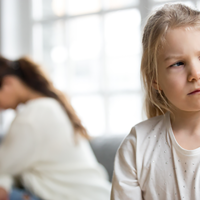Disruptive behaviour
-

Treatment of Conduct Disorders: Tailoring Approaches to Different Subtypes and Clinical Presentations
Early bird now on!
- Event type
- Introductory and Update Session
- Location
- LIVE STREAM
-

Unlocking the Potential of Parenting Programs: How Financial Incentives Can Drive Engagement
Parenting programs are vital tools for addressing disruptive behaviours in children, yet low participation rates undermine their potential. Our recent research highlights that financial incentives can boost engagement, particularly among underserved families, and suggests new directions for increasing the accessibility and effectiveness of these programs.
Read more -

The Sustainability of the Incredible Years Teacher Classroom Management Programme: Insights from UK Primary School Teachers
The current youth mental health crisis highlights the need for preventive and early intervention strategies like the Incredible Years programmes. The Incredible Years Teacher Classroom Management programme has shown positive effects on teachers’ classroom management strategies and pupil mental health. In this blog, we discuss teachers’ views on the sustainability of the programme, necessary to maintain its desired benefits in the longer term.
Read more -

Dr. Lucres Nauta-Jansen
Dr. Lucres Nauta-Jansen is a Principal Investigator at the Department of Child- and Adolescent Psychiatry and Psychosocial care of Amsterdam UMC – VUmc, where she leads the research section Youth at Risk.
Read more -

Contemporary screen time modalities and disruptive behavior disorders in children: a prospective cohort study
Paper from the JCPP – “This study’s objective was to determine the prospective associations of contemporary screen time modalities with conduct and oppositional defiant disorder in a national cohort of 9–11-year-old children”. Jason M. Nagata (pic) et al.
Read more -

The DSM-5 criteria for DMDD overlook children with context-specific impairing irritability
Impairing irritability is common in children with attention deficit/hyperactivity disorder (ADHD), but little is known about its prevalence across contexts. Now, data from a study recently published in Child and Adolescent Mental Health have shed light on the prevalence of context-specific irritability in ADHD and how it varies depending on parenting practices and sleep problems.
Read more -

Most Cited JCPP Articles #28 of 60
Most cited JCPP papers #28 of 60: Conduct disorder and oppositional defiant disorder in a national sample: developmental epidemiology
Read more -

Reflections on JCPP at 60… Professor Cathy Lord
For me, JCPP represented my growing awareness of the field of developmental psychopathology and the possibility that clinicians and researchers could work together to better understand how children and adolescents and families developed over time in a way that helped us better help others.
Read more -

Psychosocial interventions for disruptive behaviour problems are feasible in low and middle-income countries
Erly 2018, JCPP published data from a systematic review and meta-analysis of psychosocial interventions for disruptive behaviour problems in children in low and middle-income countries. The study, by Professor Matthew Burkey and colleagues, found that child-focused and behavioural parenting interventions may be effective for affected children in these socioeconomic groups.
Read more -

Child to Parent Violence
Professor Stephen Scott responds to the ITV news’ story about child to parent violence. It was based on a report published on 11 July called Let’s Talk About: Child to Parent Violence and Aggression by the authors Dr Wendy Thorley and Al Coates MBE.
Read more